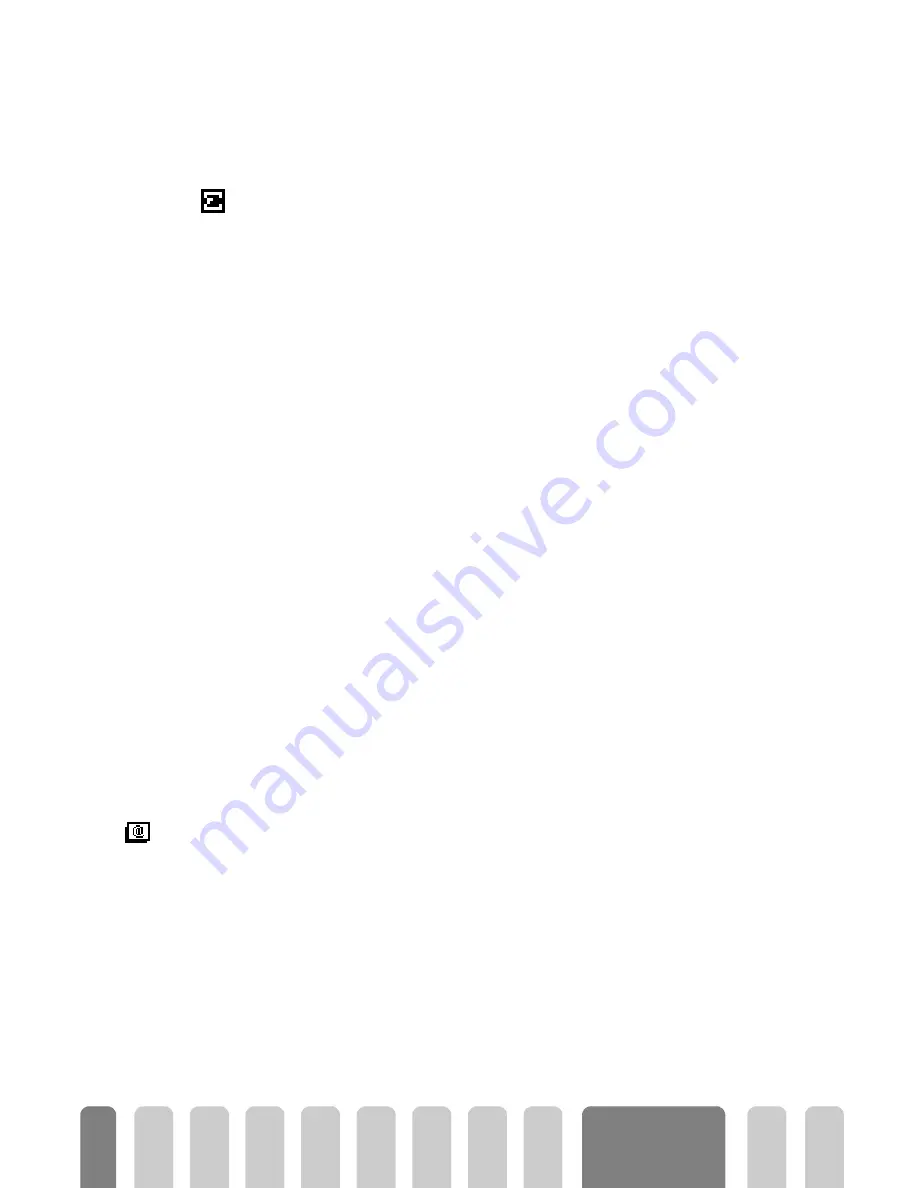
62
[Mail icon]
Another e-mail is attached to the one you received (up to five
e-mails can be attached one after the other). There isn’t any
advanced options for an attached e-mail: it can be read, but not
stored nor forwarded.
An image at the JPEG format is attached to this e-mail. Select the
attached image in the list and press
,
twice to store it in your
mobile phone (you can rename it if you wish).
L
You must have stored an image before being able to visualise it via the
Picture
album
menu. See “Images album” page 21 for detailed information on this
subject. If there isn’t enough memory to store the new image, you must delete
an item (name, event or image) to be able to store a new one.
An image may not be accepted by your mobile phone if it is too large, or if it
doesn’t have the right file format. When receiving an image via e-mail, proceed
as follows to obtain optimal results:
- The image received must have been saved in JPEG format, eventually
featuring the extension JPG, JPE or JPEG.
- The size of the image file should not exceed 7 KB.
- The optimal size is 101 x 69 pixels (maximum height is 128 pixels, and
maximum width 160 pixels), in 24 bits in order to be displayed correctly. We
recommend you use a standard picture editing software to find the size of
the image you want to send to your mobile phone.
- Use a filename of maximum 10 characters. You can then add an extension
such as ".jpg".
$GGDQHPDLODGGUHVVWRWKHSKRQHERRN
L
You must have selected the phonebook in your phone to be able to add an e-mail
address; this menu item will NOT appear if you selected the SIM phonebook.
You can add the sender’s e-mail address to your phonebook, even when you
haven’t yet downloaded his e-mail (retrieving the header only is sufficient to
access the e-mail address).
1
Select an e-mail header, then press
,
to access the carousel options.
2
Select
Add to names
and press
,
. Then select:
- <new> to create a new name, enter first and last name then add the
associated e-mail address,
or
$GGWRQDPHV






























